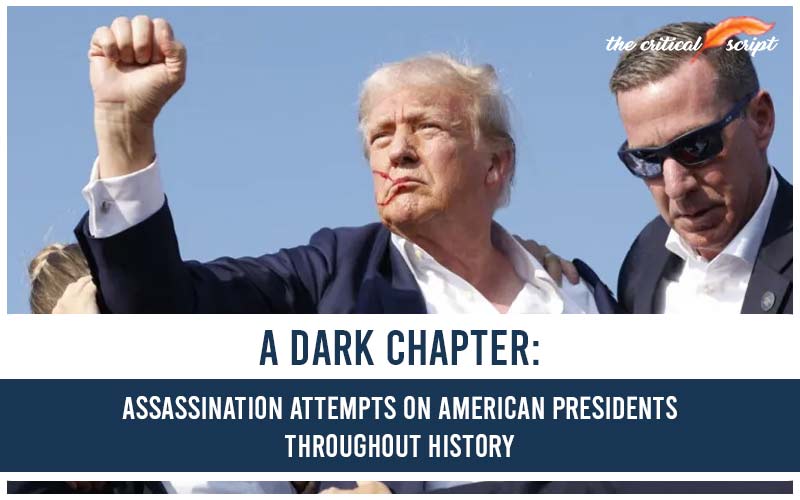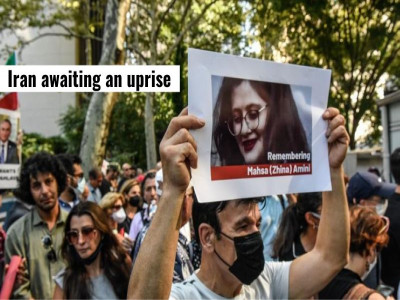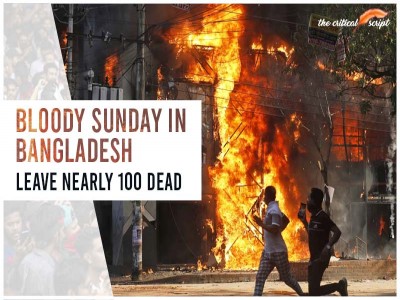
A Dark Chapter: Assassination Attempts on American Presidents Throughout History
In a chaotic and shocking incident on July 13, 2024, former U.S.
President Donald Trump was struck in the ear during an apparent assassination
attempt by a gunman at a campaign rally. Identified as Thomas Matthew Crooks, a
20-year-old from Bethel Park, Pennsylvania, the FBI is investigating this as a
potential act of domestic terrorism, suggesting he acted alone. This incident
has once again highlighted the violent political climate that has long plagued
the United States, with numerous assassination attempts on its leaders since
the nation’s inception in 1776.
Here, we explore the significant assassination attempts that have
targeted U.S. Presidents over the years, underscoring the
perilous nature of American political life.
Abraham
Lincoln (16th President)
Abraham Lincoln was the first U.S. President to be assassinated. On
April 14, 1865, he was shot in the back of the head by John Wilkes Booth,
motivated by Lincoln's support for Black rights. Booth was killed on April 26,
1865, after being found hiding in a barn.
James
Garfield (20th President)
Only six months into his presidency, Garfield was shot by Charles
Guiteau on July 2, 1881, while walking through a train station. Garfield
succumbed to his injuries, leading to Guiteau's execution in June 1882.
William
McKinley (25th President)
On September 6, 1901, McKinley was shot at point-blank range by Leon F.
Czolgosz after delivering a speech in Buffalo, New York. Despite hopes for
recovery, gangrene set in, and he died on September 14, 1901. Czolgosz was
executed for his crime.
Franklin
D. Roosevelt (32nd President)
In February 1933, President-elect Roosevelt was shot at while delivering
a speech in Miami. Although he was unhurt, Chicago Mayor Anton Cermak was
killed. Giuseppe Zangara was convicted and sentenced to death for the attempt.
Harry S.
Truman (33rd President)
On November 1950, while staying at Blair House, Truman survived an
assassination attempt when two assailants broke in. The shootout resulted in
the death of a White House policeman and one assailant. Oscar Callazo was
sentenced to life imprisonment but was released in 1979.
John F.
Kennedy (35th President)
Kennedy was assassinated on November 22, 1963, in Dallas, Texas, shot by
Lee Harvey Oswald. He died shortly after being rushed to the hospital. Oswald
was killed two days later by nightclub owner Jack Ruby while in police custody.
Gerald Ford (38th President)
Ford faced two assassination attempts in 1975. The first came from
Lynette “Squeaky” Fromme, a follower of Charles Manson, who pointed a gun at
him but did not fire. The second attempt by Sara Jane Moore also failed, as a
bystander intervened.
Ronald
Reagan (40th President)
On March 30, 1981, Reagan was shot by John Hinckley Jr. while leaving a
speech in Washington, D.C. Although Reagan survived, his press secretary, James
Brady, was critically injured. Hinckley was found not guilty by reason of
insanity and was released in 2022 after being deemed no longer a threat.
George W. Bush (43rd President)
Bush narrowly escaped an assassination attempt in 2005 while attending a
rally in Tbilisi, Georgia. A hand grenade was thrown in his direction but
failed to explode. Vladimir Arutyunian was convicted and sentenced to life
imprisonment for the act.
Theodore
Roosevelt (Presidential Candidate)
In 1912, while campaigning for a return to the White House, Roosevelt
was shot in Milwaukee. Remarkably, he sustained only minor injuries due to the
papers and a metal glasses case in his pocket. John Schrank, the assailant,
spent the rest of his life in a mental hospital.
Robert F.
Kennedy (Presidential Candidate)
Robert F. Kennedy, the brother of President John F. Kennedy, was
assassinated on June 5, 1968, after delivering a victory speech in Los Angeles.
SirhanSirhan was convicted of first-degree murder and sentenced to life in
prison.
George C.
Wallace (Presidential Candidate)
Wallace was shot during a campaign stop in Maryland in 1972, leaving him
paralyzed from the waist down. Arthur Bremer, his assailant, was sentenced to
prison and released in 2007.
The history of assassination attempts against U.S. Presidents is a stark
reminder of the violent undercurrents that can permeate a democratic society.
Each incident not only shaped the political landscape but also highlighted the
fragile nature of leadership in the face of deep-seated divisions. As America
continues to navigate its complex political climate, the legacy of these dark
moments remains a poignant part of its history.
Disclaimer: The opinions expressed in this article are those of the author's. They do not purport to reflect the opinions or views of The Critical Script or its editor.

Newsletter!!!
Subscribe to our weekly Newsletter and stay tuned.

















Related Comments